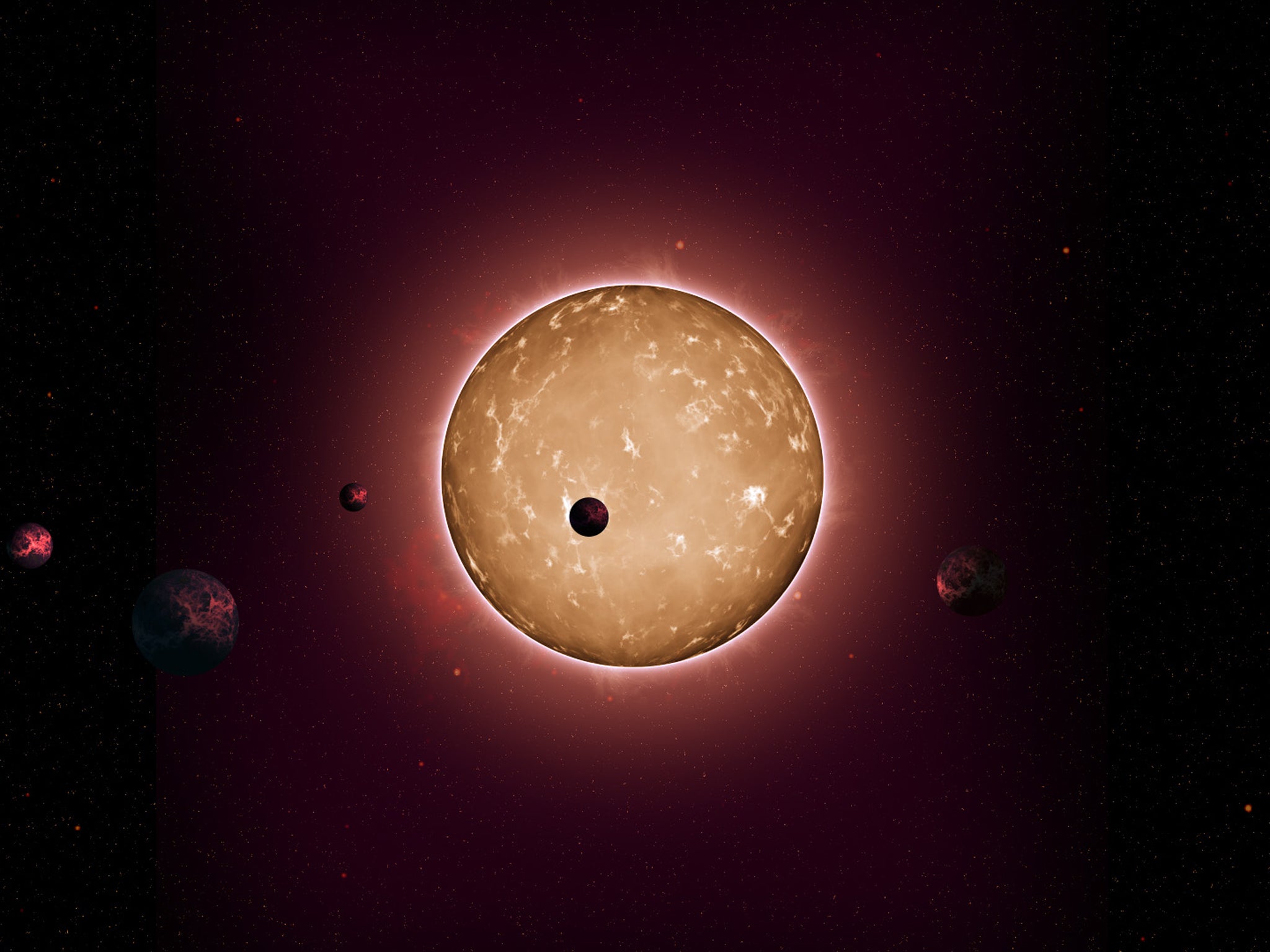Earth-sized planets discovered in Milky Way around Kepler-444 increase chances of ancient alien life
Discovery shows that Earth-sized planets have formed throughout most of the time the Universe has been around — increasing the possibility of finding another planet like ours

Five Earth-sized planets have been identified around a distant star in the Milky Way galaxy in a discovery that raises the possibility of eventually finding another rocky planet where water-based life may exist, scientists said.
All five planets are too close to their sun and too hot to harbour life but the fact that they were formed many billions of years ago when the galaxy was still young suggests that rocky, Earth-sized planets could be more ubiquitous than previously thought.
The planets in the distant solar system range in sizes between Mercury and Venus and were discovered by analysing data gathered by Nasa’s Kepler space telescope which has so far identified more than 4,000 planetary “candidates”, of which 1,013 have been confirmed as true planets.
The star around which the five exoplanets orbit is known as Kepler-444, located 117 light years away in the constellation Cygnus and Lyra. The star, which is 25 per cent smaller than the Sun, formed 11.2 billion years ago, less than 20 per cent of the age of the galaxy and long before the formation of the Sun.
This means that this ancient solar system is the oldest known group of terrestrial-sized planets in the Milky Way, about 2.5 times older than the Earth, the scientists said in their study published in the Astrophysical Journal.
“There are far-reaching implications for this discovery. We now know that earth-sized planets have formed throughout most of the Universe’s 13.8 billion-year history, which could provide scope of the existence of ancient life,” said Tiago Campante of the University of Birmingham.
“By the time the Earth formed, the planets in this system were already older than our planet today. This discovery may now help to pinpoint the beginning of what we might call the ear of planet formation,” Dr Campanete said.
The scientists made their discovery by monitoring the tiny fluctuations in light from the Kepler-444 star as each planet passed in between the star and the telescope. The size and age of the planets were estimated from analysing the resonating sounds trapped within the star in a technique known as asteroseismology.
Join our commenting forum
Join thought-provoking conversations, follow other Independent readers and see their replies
Comments
Bookmark popover
Removed from bookmarks